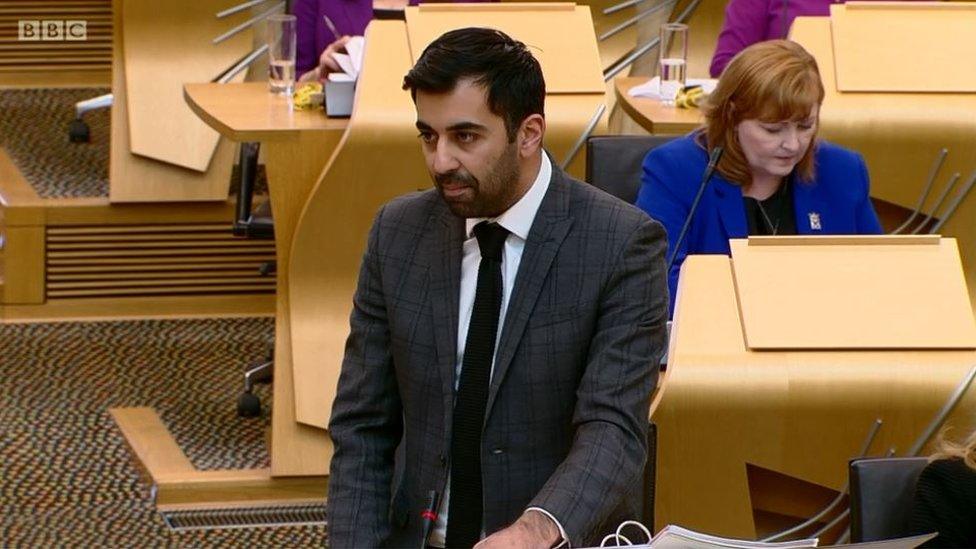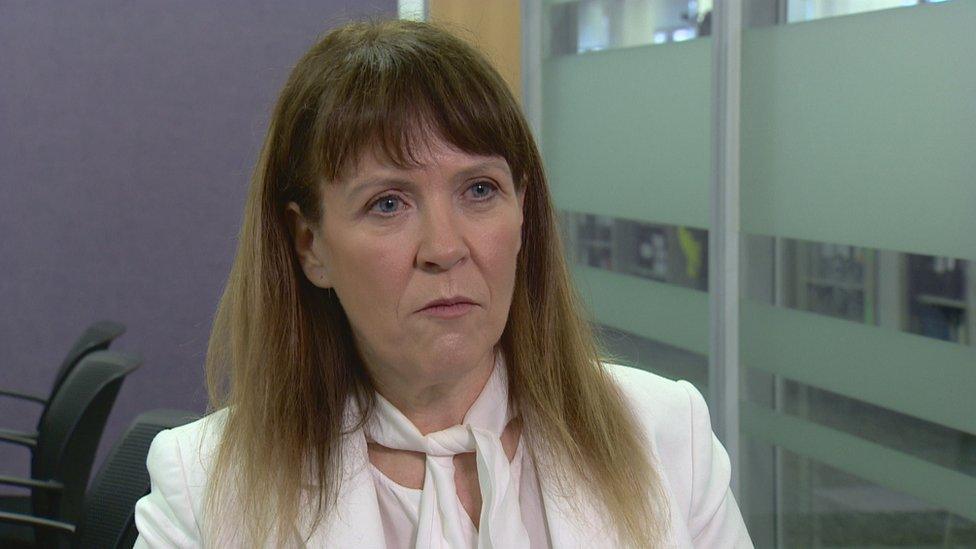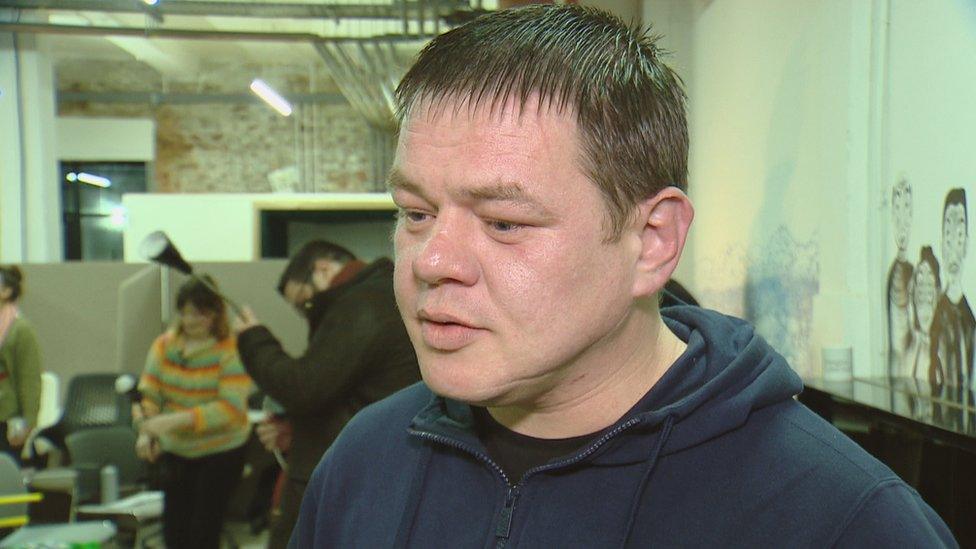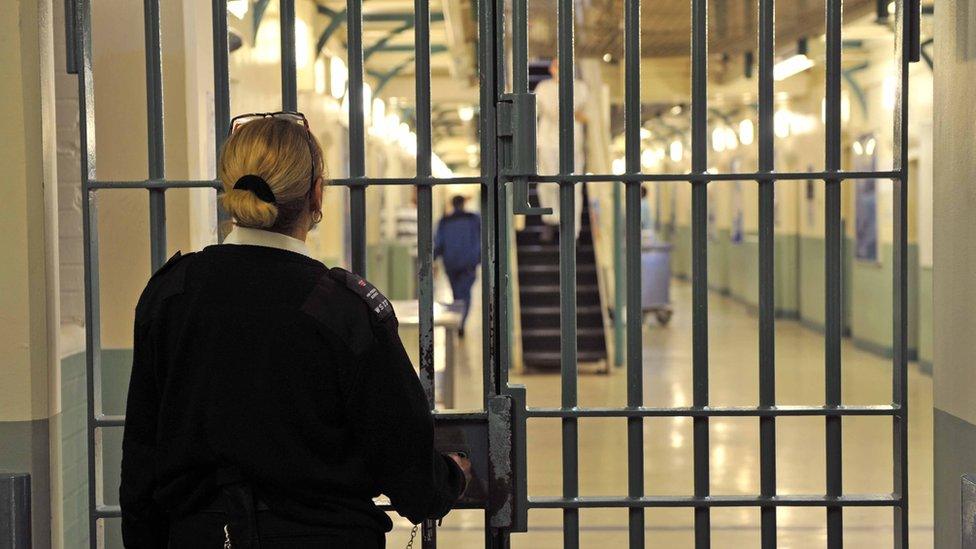Thousands sentenced to less than a year in prison despite law change
- Published

Prisons such as Barlinnie are overcrowded
Sheriffs are still sentencing people to short periods in prison despite major legislation last summer to reduce them.
The presumption was against jailing criminals for 12 months or less.
The law was introduced because experts said short terms were expensive and community sentences were "much more effective" for rehabilitation.
However, the latest data shows more than 4,200 prison sentences of less than a year were handed down in the six months since the law was introduced.

Justice Secretary Humza Yousaf said he was "reasonably positive" about the direction sentencing was taking
The figures do not breakdown how many of the crimes were committed before the new rules came into effect.
But in the final two months of 2019 more than 1,300 people were sentenced to less than 12 months, down about 13% on the same period in 2018.
Justice Secretary Humza Yousaf said he was "reasonably positive" about the direction sentencing was taking.
He said: "Although very early days, we are beginning to see a modest reduction in our prison population."
Mr Yousaf said it would take a bit longer for the impact of the new presumption to filter through.
Official figures for 2018 showed those sentenced to short jail terms in Scotland were reconvicted almost twice as often in 12 months than those given community payback orders.

Karyn McCluskey, from Community Justice Scotland, said the vast majority of prison sentences were less than a year
Karyn McCluskey, from Community Justice Scotland, said the vast majority of prison sentences were less than a year and were crimes such as public disorder, fighting, vandalism, theft and drug offences.
Scotland should jail people it was afraid of not those it was mad at, she said.
People who committed lower level crime offered a greater opportunity for transformation if they were dealt within the community, Ms McCluskey said.
But she believed more resources were needed.
Ms MCCluskey added: "We have to invest in the services that we know transform people's lives - drug services, mental health services - otherwise we are never going to be able to change this."

'I've lost count how many times I've been in and out'

John says he has been in jail about 20 times for short sentences.
"I went into prison first when I was 21 back in 1999," he says. "I've lost count how many times I've been in and out."
He says that prison overall made his less life stable and did little to improve his behaviour or attitude.
"You lose your relationship with your family, your partner and your house," he says.
John regrets the harm he has caused others in the past and he says he now recognises that there were victims to his crimes. But he says short sentences didn't work for him because there was no time to access programmes and support.
He says writing poetry and plays with creative organisations such as Vox Liminis - which works with people inside and outside the prison gates - has changed his perspective and behaviour.
"What's made a difference is finding out I can write," he says. "I've taken myself away from who I was. I'm working out who I am with the right support. I didn't know who I was under the influence of substances."

Presumption against
In June last year MSPs voted to extend the presumption against sentences of 12 months or less.
Scottish government statisticians have now produced a report, external which shows more than 4,200 sentences of less than one year were handed down in the first six months after the change, compared to about 5,000 for the same period the previous year.
The figures also showed that 1,298 people were sentenced to less than three months in prison in the second half of 2019, despite there being a presumption against such sentences since 2011.

Sheriff David Mackie said the presumption against short sentences was a statement of intent
Sheriff David Mackie, who was a full-time sheriff in Alloa, said the presumption was not a prohibition.
Sheriffs still had "wide discretion" to pass the appropriate sentence, he said.
But custodial sentences should only be a last resort when all other options had been exhausted, Sheriff Mackie said.
He said the presumption against short sentences was "our statement as a nation of where we want to be".
But he said it would take time to change attitudes and build up community-based sentences.
- Published26 June 2019

- Published8 May 2019
